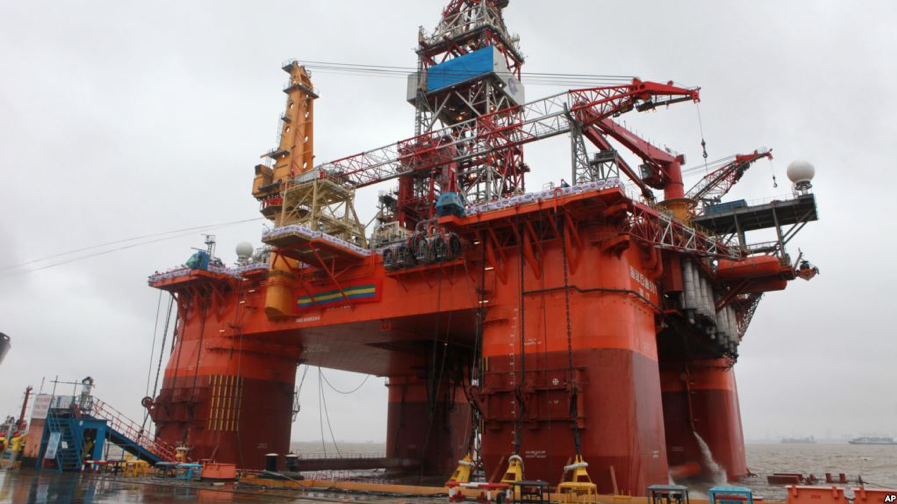Jennifer Lind and Daryl G. Press argue that China is employing strategic logic to improve the country’s energy security.
Over the past decade, Chinese firms, supported by Beijing, have stretched across the world in search of energy supplies. China has recently expanded its “going out” policy into the ambitious “Belt and Road Initiative.” Equity oil shares and service contracts deepen Chinese ties with oil producers and increase Beijing’s influence with foreign suppliers.
Critics declared that Chinese policies to secure oil make no sense in today’s globalized world. Joseph Nye argues that China “overpays” for its energy, gaining no additional security in return. A U.S. National Security Strategy criticized Chinese leaders for following “a mercantilism borrowed from a discredited era.”

Many China-watchers have debated the causes of Beijing’s seemingly irrational behavior. Perhaps it reflects the power of interest groups: according to this view, China’s navy warns about threats to China’s energy security as it lobbies for budgetary share; national oil companies (NOCs) urge the government to subsidize oil deals they favor for commercial reasons; shipbuilders and steelmakers lobby for a Chinese tanker fleet; and construction firms and local governments push for pipelines. Other scholars blame Chinese Communist Party (CCP) rent seeking, which persists despite reform toward greater privatization and efficiency in the state sector.
But what if China’s energy policies actually make sense from a strategic perspective? While interest-group politics and rent seeking undoubtedly affect China’s energy policy, we argue that China’s energy mercantilism –far from being irrational and therefore puzzling — is a logical and effective response to its vulnerability.

Our article in International Security makes three key points. First, the logic of energy mercantilism is rooted in the economics and business literatures on firm behavior. Companies fear disruptions to their supply chains (1) when their supplies come from industries beset by imperfect contracting, (2) when their suppliers are collusive, (3) when supplies are geographically concentrated, and (4) when supplies are located in regions that suffer frequent conflicts. Because all four of those conditions plague the oil sector, countries are justifiably concerned about their energy access.
Second, countries’ efforts to mitigate energy vulnerabilities mirror the efforts of firms. Both countries and firms secure supplies by gaining control or influence over key suppliers; diversifying products, suppliers, and transportation routes; creating inventories; and providing security to protect vulnerable assets.

Third, we argue that Beijing’s policies follow an energy mercantilist logic. China is highly vulnerable to energy disruptions; its leaders explain their energy policies as a response to this vulnerability; and their policies have meaningfully enhanced China’s energy security. Beijing’s energy mercantilist policies help insulate China from possible U.S. coercion (e.g., an embargo or blockade) during a conflict in the South China Sea or over Taiwan. Whereas previously the U.S. military could have cut off China’s oil imports, today China could order its tankers to resist efforts to board their vessels; use its improved military capabilities to attack blockading ships; enlist its petroleum-rich trade partners to protest the U.S. interference with commerce; increase the flow through its overland pipelines; and release oil from its large petroleum reserves. As a result, an important instrument of U.S. military power — energy coercion — is eroding.

Our article does not argue that all countries should practice energy mercantilism. Rather, we argue that it has a strategic logic and can improve a country’s energy security — even in this age of globalization and free markets. Leaders considering energy mercantilist policies must weigh their benefits against their economic and strategic costs. And in the case of China, energy mercantilism — far from being irrational — has yielded real benefits.
Jennifer Lind is Associate Professor of Government at Dartmouth, and a Faculty Associate at the Reischauer Institute for Japanese Studies at Harvard. Her research focuses on the international security relations of East Asia. She is currently writing a book that charts the path countries must navigate, and the obstacles they must overcome, as they rise to become great powers.
Daryl G. Press is Associate Professor of Government at Dartmouth, and a Research Associate at the Security Studies Program at MIT. Press’s work on nuclear weapons informs debates about the stability of nuclear deterrence on the Korean peninsula, and in US-China relations. He has just finished a book on nuclear deterrence, and is currently working on multiple articles that analyze the US military’s ability to project force in the Western Pacific.

